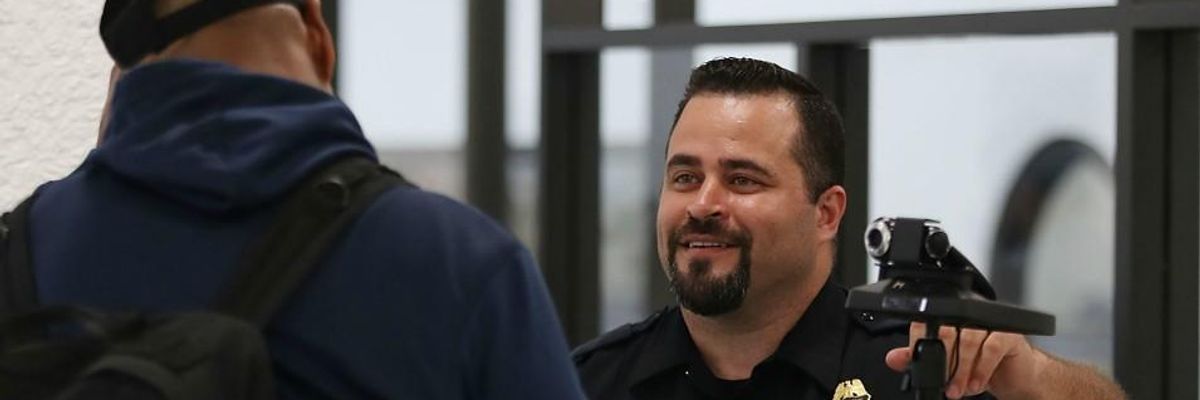Sen. Bernie Sanders on Thursday called on Congress to enact a total ban on police use of facial recognition technology after Microsoft's president said the company--following a sustained outside pressure campaign--will not sell its surveillance software to law enforcement until stricter privacy regulations are implemented.
"Facial recognition technology violates the privacy and civil liberties of Americans, and deepens racial bias in policing," the Vermont senator tweeted. "Congress must ban facial recognition technology for all policing."
It's not the first time Sanders has made the demand, as a proposal to "ban the use of facial recognition software for policing" was included in his 2020 presidential campaign's criminal justice reform agenda.
Sanders' demand came after Microsoft president Brad Smith said during an event hosted by the Washington Post that his company "will not sell facial-recognition technology to police departments in the United States until we have a national law in place, grounded in human rights that will govern this technology." Smith clarified that Microsoft does not currently provide facial recognition technology to U.S. police.
As Common Dreams reported Thursday, Amazon--which has been selling its facial recognition product to law enforcement for years--also committed to temporarily bar police from using its notoriously inaccurate Rekognition software.
Matt Cagle, technology and civil liberties attorney with the ACLU of Northern California, said in a statement that "when even the makers of face recognition refuse to sell this surveillance technology because it is so dangerous, lawmakers can no longer deny the threats to our rights and liberties."
"Congress and legislatures nationwide must swiftly stop law enforcement use of face recognition," said Cagle. "It should not have taken the police killings of George Floyd, Breonna Taylor, and far too many other black people, hundreds of thousands of people taking to the streets, brutal law enforcement attacks against protesters and journalists, and the deployment of military-grade surveillance equipment on protests led by black activists for these companies to wake up to the everyday realities of police surveillance for black and brown communities."

